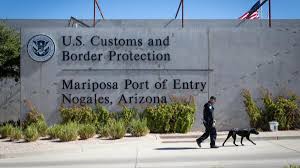A viral post on social media has reignited a heated national debate surrounding the language used to describe individuals who cross the U.S. border without legal authorization. The statement, “Every illegal is a criminal by definition. They are not migrants. They are not undocumented. They are criminals,” has drawn sharp responses from both sides of the political spectrum.
Supporters Demand Legal Precision
Those in support of the terminology argue that entering the country illegally constitutes a federal offense and should be labeled accordingly. Many conservatives believe that terms like “undocumented immigrant” downplay the legal implications.
“Illegal entry is a crime. There’s no such thing as an undocumented citizen,” commented one user, echoing calls for linguistic and legal clarity in immigration discourse.
Advocates Call the Label Harmful and Inaccurate
On the other side, immigration advocates and progressives argue that criminalizing immigration status ignores the plight of asylum seekers, refugees, and families fleeing violence.
“Calling every undocumented person a criminal is not only factually misleading but also dehumanizing,” said a spokesperson from a leading immigrant rights organization.
The Legal Reality: Civil vs. Criminal Offenses
According to current U.S. federal law, illegal entry is a misdemeanor for first-time violators. Repeat offenses can lead to felony charges. However, most undocumented individuals are processed under civil immigration laws, especially in asylum cases.
Legal experts point out that this dual legal structure—civil and criminal—contributes to the confusion in public rhetoric and policy discussions.
Policy Proposals Reflect Growing Divide
The terminology debate is also influencing legislative efforts. Some lawmakers advocate for stricter penalties and faster deportation protocols, while others call for reforms to simplify legal entry and asylum processing.
Biden Administration Faces Criticism
President Joe Biden’s immigration policies have drawn fire from both ends of the political spectrum. Progressives argue the administration has not gone far enough to protect vulnerable migrants, while conservatives view the current approach as too lenient, encouraging illegal crossings.
Social Media Fuels the Flames
Hashtags like #SecureTheBorder and #ImmigrantsAreNotCriminals are trending simultaneously, amplifying opposing views and deepening polarization over immigration terminology and policy.
What Americans Think
Recent polls suggest that a majority of Americans support stronger border security. However, a significant percentage also favor providing pathways to legal residency for nonviolent undocumented immigrants already living in the U.S.
Looking Ahead
As the 2024 election season intensifies, immigration language and policy will remain a central campaign issue. Whether individuals are referred to as “illegal aliens,” “undocumented immigrants,” or simply “migrants,” the terminology continues to shape public perception and political strategy.
With millions of lives at stake, this debate isn’t just about words—it’s about identity, law, and the future of immigration in America.
Tags: immigration terminology, illegal immigrants, undocumented, migrant crisis, U.S. border, asylum seekers, immigration reform, Biden immigration policy
